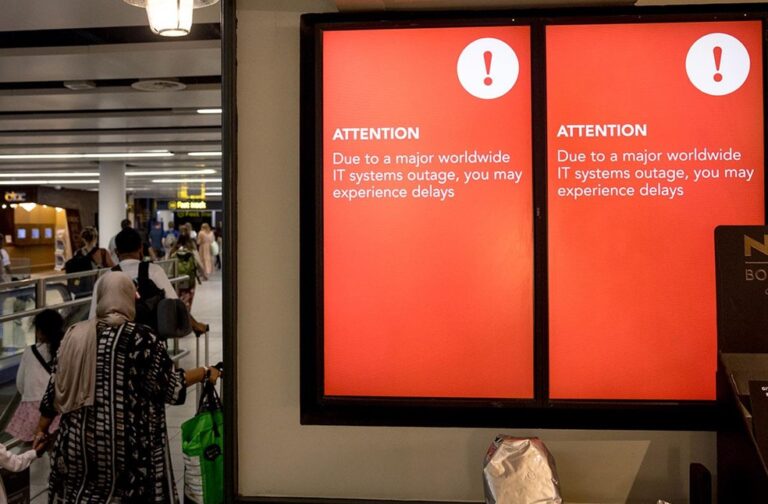United States: Businesses and services worldwide are slowly recovering from a massive IT outage that caused significant disruptions on July 18th and 19th. The outage, triggered by a faulty software update from cybersecurity firm CrowdStrike, impacted computer systems across various sectors, including businesses, banks, hospitals, and airlines.
CrowdStrike’s CEO, George Kurtz, issued an apology for the disruption and announced that a fix had been deployed. However, Kurtz acknowledged that it could take ‘some time’ before all systems are fully operational. The outage began at 19:00 GMT on July 18 and primarily affected Windows users running CrowdStrike Falcon software. The full scale of the problem became evident by July 19th morning.

The global outage was caused by an update to CrowdStrike’s main cybersecurity tool, Falcon. The update, which was meant to enhance the cloud-based software, malfunctioned and disrupted its interaction with other systems and software, such as Microsoft Windows. This resulted in widespread system failures and software outages worldwide.
The affected services are gradually returning to normal. Airlines, which saw thousands of flight cancellations, are slowly resuming operations, though delays and cancellations are expected to persist through the weekend. Hong Kong International Airport has reported a return to normal operations, according to reports.
In the banking sector, JP Morgan Chase is working to restore service to ATM machines, while Downdetector indicated fewer tech issues in the UK by the end of the day. Health services in Britain, Israel, and Germany also faced disruptions, with some operations cancelled.

The incident has raised concerns about the vulnerability of interconnected technologies and the impact of a single software glitch on global operations. CrowdStrike’s fix requires individual application to each affected device, and some users have reported needing up to 15 reboots to resolve the issue.
CrowdStrike’s shares fell by around 12 percent, with competitors SentinelOne and Palo Alto Networks seeing gains. The outage, which was first noted in Australia, severely impacted the air travel industry, leading to delays, long queues, and manual check-ins at airports. Over 4,000 flights, or approximately 3.9 percent of the total, were cancelled, according to aviation reports.
The broader effects of the outage may include delays in wage payments and disruptions in various sectors, including railways and broadcasting.



